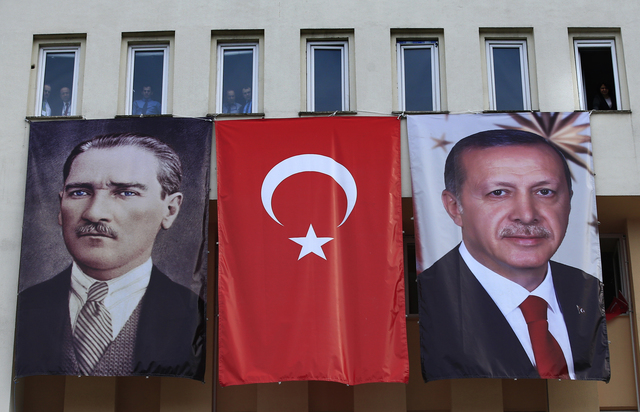Istanbul – A referendum that was held in Turkey last Sunday put the country on the doorsteps of the Second Republic as a result of the Constitutional amendments that would deal a blow to the First Republic that was founded by Mustafa Kemal known as Ataturk in 1923.
The ‘Yes’ side won 51.4 percent of the vote in the referendum to create an executive presidency that saw President Recep Tayyip Erdogan win expanded powers.
After the results showed the tight win for Erdogan, the Turkish president said the ‘Yes’ vote meant Turkey took a historic decision and ended the dispute that has been raging for the past 200 years on its current system.
His statement meant he went back in history, even 100 years before the Ataturk era, when Sultans Mehmet II and Abdulmecid I introduced the features of modern Turkey’s political system.
An opposition member said Erdogan’s remarks were a reflection of his “ideological conviction that Western influence had poisoned Turkey’s political system via reforms in 1839.”
Ataturk established the Turkish Republic in 1923 and abolished the office of the Caliphate. He rebuilt Turkey – with its current borders – based on a parliamentary system in which the president had limited powers. Yet he ruled the country with an iron fist similar to what Erdogan has been doing since his election a few years ago.
The July 2016 failed coup against him compelled Erdogan to realize his dream in transforming the political system into an executive presidency.
Binali Yildirim for the Premiership
Prime Minister Binali Yildirim has argued changes that will take place following the referendum will prevent situations like the squabbling between president Turgut Ozal and premier Suleyman Demirel that marked the political chaos of the early 1990s.
Under the constitutional amendment the post of prime minister will be extinguished for the first time.
So after the ‘Yes’ vote Yildirim’s own job will be axed.
But the radical changes will be held simultaneously in 2019 after presidential and parliamentary elections.
AKP Conference
Yildirim has said that practical steps for change will start soon when Turkey’s ruling Justice and Development Party holds its conference to re-elect Erdogan as its leader. He also ruled out holding early parliamentary and presidential polls.
However, the editor-in-chief of English-language Hurriyet Daily news, Murat Yetkin, expected Erdogan to move fast in implementing the presidential system.
Yetkin told Asharq Al-Awsat newspaper that the changes require the adoption of some laws. He also expected a minor cabinet reshuffle.
Several cabinet members have rejected the possibility of holding early elections. Yet Erdogan could resort to such a move in order to guarantee more supporters in the parliament, said the journalist.
After proclaiming victory, Erdogan promised thousands of supporters that Turkey would hold a referendum on the issue of death penalty if parliament failed to adopt it.
But Yetkin warned that reviving specter of capital punishment would lead to more tension with Turkey’s allies in the West, mainly the European Union. This could have bad repercussions on European investments in Turkey.
The Stance of Nationalists
The support of the Nationalist Movement Party (MHP) for the constitutional amendments proposed by the AKP has led to dangerous splits in the MHP. Yetkin hinted Devlet Bahceli, the head of MHP, which is an opposition party, is facing an existential crisis.
Kemal Kilicdaroglu, the head of the Republican People’s Party (CHP), was the only opposition leader that staunchly and openly fought for a ‘No’ vote against the constitutional amendments after Selahattin Demirtas and Figen Yuksekdag, two co-leaders of the Peoples’ Democratic Party (HDP), which is the country’s main pro-Kurdish party, were jailed.
Yetkin said MHP failed to achieve its objective but was able to clinch around half of the votes in the referendum. “This will give it a strong push in the next elections.”
Yusuf Halacoglu, an MHP member who opposes Bahceli, said there can’t be any democracy in a country if the legislative, executive, and judicial branches, which are independent from one another, are brought under the control of one person.
That person will become a dictator, he said.
“If we take a look at the 18 articles that will be amended in the Constitution, we realize that the system which (Erdogan) wants to implement in Turkey is far away from the presidential system of the United States,” Halacoglu added.
In his remarks to Asharq Al-Awsat, he denied that the MHP’s members have been divided, saying 90 percent of its supporters reject the changes.
Halacoglu said late MHP founder Alparslan Turkes was one of the staunchest critics of the presidential system in Turkey.
He lamented that the ‘Yes’ vote has transformed the representatives of the three branches of government into employees who take direct orders from Erdogan.
“In short, Turkey will have very difficult days ahead,” Halacoglu added.
